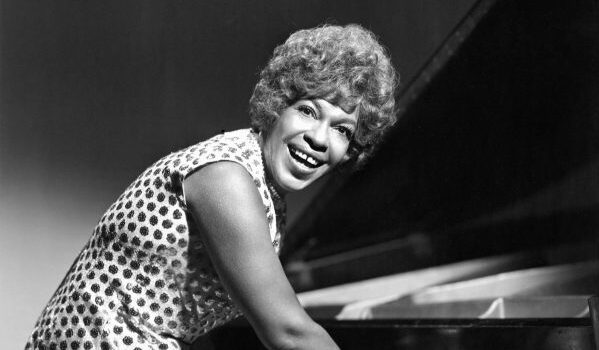Our history of extraordinary ancestors

IF you are fortunate, there will be very rare but very real moments in your life when unremarked and unexpected, you are exactly where you want to be, doing exactly what you want to do, feeling in perfect synchrony with life which few people ever get the chance to feel.
On Tuesday I had that experience, sitting in Queen's Hall as it was renamed into the Winifred Atwell Auditorium by the Prime Minister.
He spoke to an audience largely made up of Atwell’s family, friends and people from the music community, many of whom had been present at her Ivory and Steel inaugural concert many years ago in the same venue.
He spoke with reverence, as though he were speaking to friends.
He spoke with affection, as did Dr Helwig, chairman of the board and, in a surprise face-to-face video appearance, Sir Elton John who regarded her as his guide and mentor, the inspiration for him, the Trinidadian woman who started him in his career.
Winifred Atwell would have been proud of the professionalism of the entire production. It was an awesome experience. The quality of the music in the concert that ensued would have graced any concert hall in any capital city in the world.
Mrs Atwell’s spirit was very much present in the hall which transformed the auditorium into something like a cathedral. Alan Cooper and Chantal Esdelle were in top form, teasing out the intimacy of the relationship they have developed between pan and piano. There were no harsh notes just a gentle rumbling from the bass pan sweetened by the tenors so gently and lovingly that you breathed it in, like a prayer.
And then, Sean Sutherland, accompanied by the National Steel Symphony Orchestra slid into the symphony. And something electric happened.
A kind of energy swept through the auditorium. Winifred’s essence ... the essence that awed Paris and Berlin and London and New York and Milan and Australia’s Opera House, which Trinidad took for granted because she came from here. It struck like lightning.
Sean Sutherland doesn’t play the piano. I doubt he ever has. The piano plays him. Music shoots out of his fingers, his feet, the top of his head even his elbows, Sitting near the stage, I saw expressions on the faces of the musicians in the orchestra freeze and never change as long as he was at the keyboard, transformed from a man to an adjunct to the piano. It was truly extraordinary.
I am not a musician myself, but I was seated next to David Boothman, a talented musician, also the artist who created the series of Heritage portraits that made Trinidad and Tobago aware that it has a history of truly extraordinary ancestors.
When I turned to him wondering if I were over-reacting, I saw the same energy on his face. The audience had been transformed into a realm where music captured body and spirit and we were all one community. Pumpkin-vine family. Music can do that.
I was awash with gratitude for being in that function at that time. Grateful to be part of this community, this country, a country that could produce a Winifred Atwell and can produce the amazing quality of orchestral musicianship that stood on the stage of the Winifred Atwell Auditorium on Tuesday night.
Grateful that this country has evolved that level of disciplined professionalism in the production of music. And, I suddenly realised, can do so again.
Music that can heal pain, can change lives. And I wondered then, as I do now, why the people who administer our education system and mourn youthful crime, school dropouts and mounting suicides do not realise that the solution is crying out for their attention? Why do they not see what is before their eyes, singing into their ears? The answer is not replacing the ships on the shield.
Every country must acknowledge its past and the courage it needed to overcome the pain it took to do so, look and see that courage in David Boothman’s portraits of our ancestors.
Look behind the smiles and into the eyes. To become an adult every child must learn to overcome the pain of growing and must do so in a society that is at the same time beautiful and very hurt and very very imperfect.
As are we all.
And we must learn to live with each other’s imperfections, but most of all to acknowledge and live with our own.
We should have changed the music curriculum in every school in our country from teaching with a recorder to teaching with pan. You can learn chords and scales, tonal spacing and theory as well with a pan as with a piano.
And along with theory, learn the wonder of the power of the spirit of Trinidad and Tobago with the discipline the ancestors had.
You think it was easy for them? Could you do it, faced with what they faced?
Can you do it with the challenges in this raw and emerging republic if you are among the refugees legal and illegal, clutching children to their chests, that they are facing?

Comments
"Our history of extraordinary ancestors"